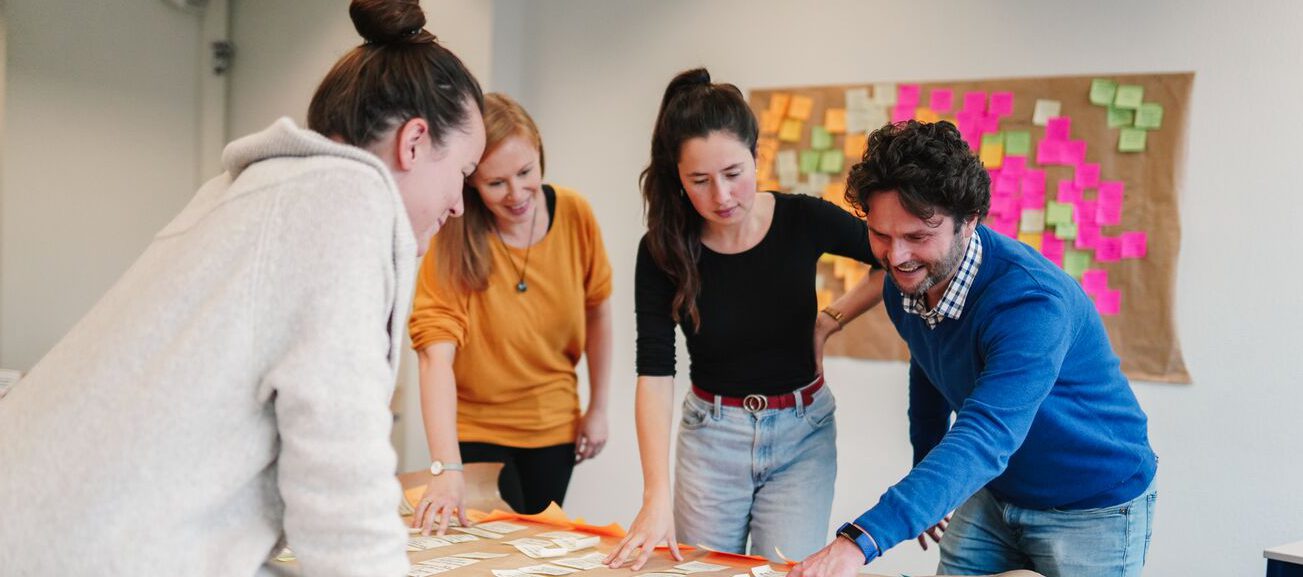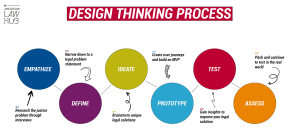
Projects – TLC Didactic Innovation grant
The TLC Didactic Innovation grant
The TLC Didactic Innovation grant supports you in finding innovative solutions to your didactic challenges. These solutions can contribute to behavior change, engagement and knowledge transfer in education. On this page you can read more about the ongoing and completed project and their grant holders. The TLC Didactic Innovation grant changes themes annually. This academic year’s theme (2025-2026) is Assessment Reimagined.
Read more about the TLC Didactic Innovation grant and how to apply
Student Engaged Learning (2024-2025)
An interactive e-learning module in Cadens helps students practice clinical reasoning through virtual consultations.
Floris Bikker, Academisch Centrum Tandheelkunde Amsterdam
By integrating game elements into math tutorials, this project increases engagement, corrects misconceptions, and enhances students’ learning experience.
Jacques Masuret, Economics and Business
By applying game-based learning to supply chain coordination, students can experience tactics in practice and better understand the underlying mathematical models.
Alex Kuiper, Economics and Business
Integrating creative writing assignments enhances student engagement and facilitates improvement in academic writing skills in the critical classroom.
Marc Farrant, Faculty of Humanities
By implementing weekly group projects in a biomedical context, students actively apply statistics through the entire empirical cycle.
Tomas Meijer, Faculty of Science
Students from different educational levels; vocational (MBO), applied sciences (HBO), and university (WO); collaborate seamlessly to tackle complex societal challenges, such as labor rights for vulnerable groups.
Francis Singleton, Amsterdam Law School
Amsterdam Law School
Gamification (2023-2024)
Aiming to enhance student engagement and teamwork in seminars, this project introduces Escape Room sessions for the Business Operations Processes course. The innovative approach goes beyond traditional exercises, creating a dynamic, fast-paced learning environment. The Escape Room seminars aim to improve overall student experience, stimulate critical thinking, and prepare students for future challenges in the field of business.
Addressing challenges in the Living Information – Media Studies course, this project aims to revolutionize the exam protocol. With a focus on large-scale engagement and the incorporation of gamification elements, the goal is to create an inspiring, fun, and constructive summative assessment approach. By pushing the boundaries of traditional exam methods, this innovation seeks to benefit not only the course itself but also serve as a model for improving assessments in other UvA large lecture courses.
This project introduces an “Escape the Classroom” game to enhance learning in Literature Swedish and ‘Van Yggdrasil tot urban slang.’ By fostering collaboration, critical thinking, and problem-solving skills, the game aims to create a cohesive understanding of course content. The adaptable format allows customization for broader application within and beyond the Faculty of Humanities, providing an interactive and enjoyable educational experience.
This project aims to revolutionize the teaching of qualitative data analysis in the Research Master’s Social Sciences program by introducing elements of gamification. The current challenge involves students’ varying levels of enthusiasm for coding and the disconnect between theoretical knowledge and practical application. By modifying existing board games and role-playing games, the project seeks to make coding more engaging and intellectually stimulating. The proposed games will guide students through analytically specific themes, fostering teamwork and structured collaboration. The desired outcome is an improved understanding of data analysis, increased motivation, and constructive group dynamics during coding sessions. The project not only aims to benefit the current course but also offers potential applications for qualitative research courses across the University of Amsterdam.
This project aims to develop an improved Python course for third-year BA Psychology students. The current issue is that students heavily rely on ChatGPT to solve tasks during the course, hindering their ability to learn Python competently and autonomously. The proposed solution involves changing the nature of the assignments, focusing on conceptual understanding and debugging existing code. This shift in focus aims to develop skills less accessible to AI, better preparing students to write their scripts with AI assistance.
This project proposes a unique approach to enhance students’ understanding of global security issues within the Politics, Psychology, Law, and Economics (PPLE) program at the Faculty of Law. The Integrative Seminar on Security, typically focused on theory, will incorporate active learning by having students design and run a crisis simulation. The simulation will encourage students to delve into diplomatic, military, and ethical aspects of international conflicts. By actively participating in the creation and execution of a crisis scenario, students will gain a more profound understanding of the complexities surrounding global conflicts. The project aims to bridge the gap between theoretical knowledge and real-world application, providing students with valuable experience in crisis management and international relations.
This project aims to address the challenges in the traditional teaching approach of Criminal Sanctions Law within the Faculty of Law. The current method lacks practical engagement, making it difficult for students to grasp ethical dilemmas and the real-world impact of legal decisions. The proposal suggests the development of an online, interactive serious game that immerses students in realistic scenarios, prompting them to make decisions from the perspectives of different legal roles (prosecutor, defense attorney, and/or judge). Leveraging modern technologies such as interactive and adaptive videos, quizzes, and online assignments, the serious game will be integrated with physical sessions to create an engaging and practical learning experience. The project aims to enhance student motivation, active learning, and ethical awareness by providing a safe environment for experiential learning.
This project aims to enhance the experiential learning experience in the MA Staats- en bestuursrecht module, specifically the “Migration game.” While the game introduces valuable elements, it needs refinement to align with the Dutch context and cater to the unique needs of the Dutch student population. The grant will facilitate the adaptation of content, incorporating national migration law and specific actors from Dutch legal practice. Additionally, educational support will be provided to optimize the game for diverse students, ensuring an engaging and relevant introduction to migration law.
This Faculty of Medicine project tackles the deficiency in lifestyle education within the Bachelor of Medicine program. By integrating gamification through challenges like the Supermarket Safari and Eiffel Tower Challenge, the initiative aims to move beyond theoretical knowledge. The project strives to empower future healthcare professionals with practical skills to promote active lifestyle changes, enhancing the overall health education experience.
Completed projects




Within the clinical courses of one of our grant holders, they found it important to familiarize students with ‘real’ client cases to prepare them for their future work. Until now, this was mainly done through paper cases that were made up by the teacher. Students however indicated that they find it difficult to really empathize with such cases. That is why the grant holder wanted students to learn about the treatment experiences of real clients, while listening to podcasts. They recorded clients’ experiences about different stages of treatment among which: the first meeting with the therapist, the treatment itself, the relationship with the therapist and ending of the treatment. The goals were among others to improve student’s listening skills, increase their level of empathy and compassion and reflect on the effect of these experiences on themselves.






